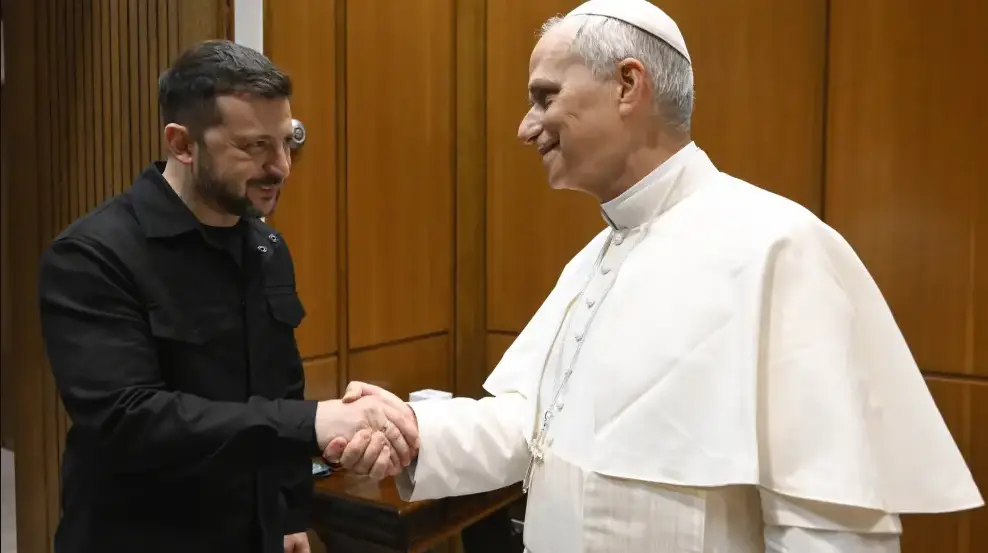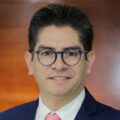The election of Pope Leo XIV has marked an unexpected turning point in the recent history of the Catholic Church and international diplomacy. His secular name, Robert Francis Prevost, not only makes him the first American-born pontiff, but also a leader deeply rooted in Latin America—particularly in Peru, where he served as bishop for nearly two decades. This dual identity—North and South, center and periphery—is more than just a biographical detail: it is the axis of a geopolitical shift that could redefine the Vatican’s role in the 21st century.
Today, the Catholic Church counts nearly 1,378 billion faithful worldwide, according to the 2023 Pontifical Yearbook published by the Vatican’s Central Office of Church Statistics. Of that total, approximately 41% live in Latin America and the Caribbean, according to recent estimates from the Pew Research Center (2023), making the region the largest Catholic bloc in the world. Yet that demographic weight has not always been reflected in decision-making or ecclesial leadership.
The election of Leo XIV therefore carries deep symbolic and strategic significance. In a world fractured by geopolitical tensions and lacking moral leadership, the Vatican is repositioning itself as a player with the potential to mediate, denounce and propose solutions. And it is doing so through a pope who knows both the centers of power and the historically marginalized peripheries up close.
His pastoral work in Peru—where he was bishop of Chiclayo from 2015 to 2023 and apostolic administrator of Moyobamba—was not that of an occasional visitor, but of someone committed to the social fabric. In a country where roughly 25% of the population lives in poverty, data from Peru’s National Institute of Statistics and Informatics (INEI) shows, his leadership has been praised for its closeness to grassroots communities and defense of the rights of Indigenous peoples, particularly in the Amazon. This region is among the most affected by deforestation, illegal mining and environmental crime, as reported by the Amazon Geo-Referenced Socio-Environmental Information Network (RAISG) in 2023.
Thanks to this experience, Leo XIV has a direct understanding of the structural inequalities of the Global South—but also a rare capacity to engage with the economic and political elites of the Global North. This dual perspective gives him a legitimacy that few religious or political leaders today can claim.
From the first moments of his papacy, he has demonstrated a direct, sober and committed style. He has offered the Vatican as a neutral venue to facilitate dialogue between Ukraine and Russia, in a war that, according to the United Nations Office for the Coordination of Humanitarian Affairs (OCHA), has caused more than 500,000 deaths and displaced over 14 million people (2024 report). He has also reaffirmed the Church’s commitment to protecting the Amazon and Indigenous rights, continuing the path laid out by the 2019 Amazon Synod and reinforced by Pope Francis.
In Latin America, his election has sparked palpable enthusiasm. His figure represents a source of hope amid the rise of new evangelical churches and growing disaffection with traditional religious institutions—a phenomenon widely documented by Latinobarómetro in its 2023 report.
Still, his leadership will not be free of challenges. His time in Peru has been the subject of controversy due to claims of allegedly covering up sexual abuse cases in his diocese. Though there is no conclusive evidence to date and the Chiclayo diocese has defended the transparency of his administration, the issue has been covered by outlets such as HuffPost and BBC Mundo, sparking debate within both ecclesial and media circles. Public perception remains critical: according to the latest Latinobarómetro, 68% of Latin American Catholics believe the Church’s actions on clerical abuse are insufficient.
How Leo XIV handles this issue will be decisive for the tone of his pontificate. It will not only define his relationship with public opinion but also determine his ability to credibly push for institutional reform. The Church today, more than ever, needs leaders willing to acknowledge past errors and offer genuine assurances of change.
Leo XIV’s profile and life story open new scenarios for the relationship between the Church and Latin American states. His pontificate could translate into a more active Church in matters of social and environmental justice, as his experience in Peru suggests a pastoral leadership geared toward social equity. The Church is expected to exert greater pressure on Latin American governments regarding poverty, healthcare, education and the environment, in line with Catholic Social Teaching.
There could also be a stronger push to protect the Amazon and Indigenous peoples. The Amazon—spanning eight countries and home to over 400 Indigenous nations—has become a top priority for the Vatican. The pope could strengthen dialogue and pressure on Amazonian governments concerning extractive policies, environmental protection and collective rights, even if it leads to tension with states prioritizing economic development.
Another likely scenario is the revitalization of the Church’s role as a mediator. Under Leo XIV, Vatican diplomacy could regain prominence in resolving political and social conflicts, as has already been seen in Colombia and Nicaragua. The pursuit of dialogue and the willingness to serve as a bridge could restore the Church’s public presence—not just as a moral authority but as a concrete agent of reconciliation.
A further development may be a move away from partisan politics and a renewed focus on grassroots communities. His biography suggests a tendency to strengthen the Church’s autonomy from political parties, favoring presence in local communities and closer ties with vulnerable sectors. This could refresh the Church’s relationship with civil society, although its direct political influence will remain limited by religious pluralism and the expansion of evangelical churches.
Lastly, transparency and credibility will be essential for effective dialogue. Accountability in abuse cases will be crucial for the Church’s legitimacy with states. Moral credibility will be Leo XIV’s main asset in dealing with governments and society.
Leo XIV is not merely a new face at the helm of the Church: he is a figure of geopolitical relevance. His life story allows him to build bridges across cultures, religions and centers of power. He can speak the language of the powerful—without betraying the causes he championed in the neighborhoods of northern Peru. In an international landscape where Donald Trump’s reelection could reshape global power dynamics and reinforce a more nationalist, conservative agenda, Leo XIV could emerge as a moral and institutional counterweight. While his stances on migration, the environment and social justice diverge from those of the U.S. president, his American citizenship and diplomatic disposition could open channels of dialogue that would be difficult for other religious leaders to access.
If he can navigate the internal challenges and capitalize on the symbolic weight of his personal story, Leo XIV could become a transitional pontiff: one who closes the chapter of scandal and polarization and opens a new cycle in which the Church reclaims its global role with moral authority and a mission of service.
In a world urgently in need of more bridges and fewer walls, the figure of Leo XIV is no mere diplomatic footnote: it is a strategic move. Vatican diplomacy once again has a face capable of challenging power—and also sitting down to dialogue with it. And that, now more than ever, is indispensable.
*Machine translation proofread by Ricardo Aceves.













